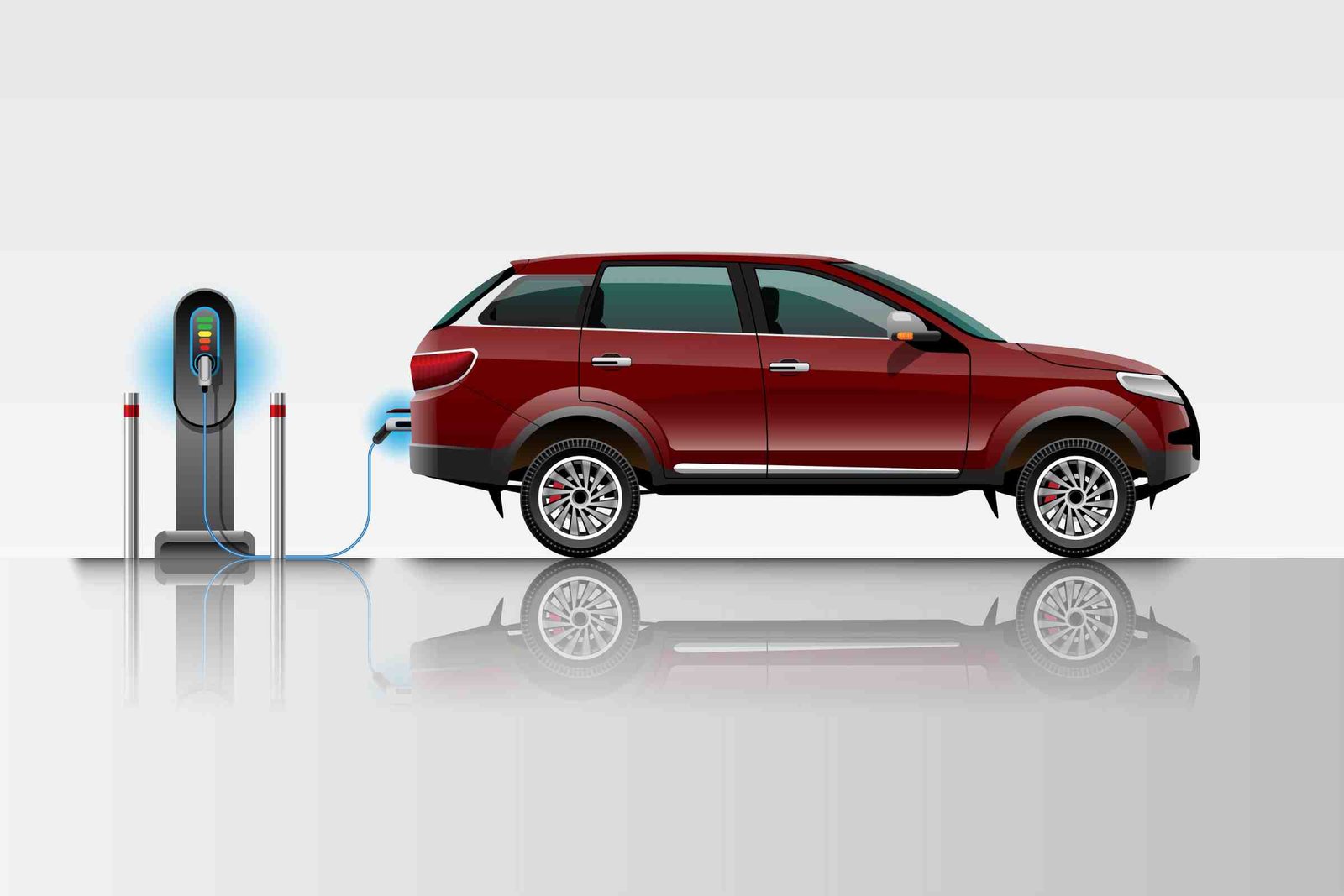-
Advantages of Electric VehiclesAdvantages of Electric Vehicles
-
> No Emissions, Low Pollution> No Emissions, Low Pollution
-
> Low Maintenance> Low Maintenance
-
> Low Running Costs> Low Running Costs
-
> Performance> Performance
-
uture Plans for Electric Vehiclesuture Plans for Electric Vehicles
EVs, Electric Vehicles run on electrical battery power instead of traditional internal combustion engines.
Major car manufacturing brands are planning to stop manufacturing cars that run on internal combustion engines and completely switch to EV cars. And, there are major advantages to this decision.
Before we dive deeper into the different brands and their plans with EV, let us take a quick look at the advantages and benefits associated with Electric Vehicles aka, EVs.
Advantages of Electric Vehicles

There are numerous advantages of switching to electric vehicles compared to the traditional vehicles with combustion engines.
Here are the advantages of electric vehicles:
- No Emissions, Low Pollution.
- Low Maintenance
- Low Running Costs
- Performance
EVs produce no Emissions and low Pollution
A typical vehicle emits approx 4.6 metric tons of CO2 annually on average. That is, every gallon of gasoline burned creates approx 8,887 gms of carbon dioxide. That’s a pretty huge number.
And, this is just about the CO2, there are other pollutants and other greenhouse gases emitted that cause global warming and ozone depletion. Vehicle emissions are dangerous. They are like cancer (Or should we say COVID-19?) is for humans.
With EVs, the emissions are out of the picture. If you charge your EV with a renewable source of electricity you are doing much better for the earth.
EVs have Low Maintenance
With petrol, diesel, or gasoline out of the picture, the maintenance required for your car is drastically reduced.
Answer this: How often do you have to maintain the electrical appliances in your home? Only once in a blue moon.
Similarly, with EVs, the debris accumulated is much less and the problems are reduced significantly.
Recommended Read: 6 Tips for car engine maintenance
EVs have low Running Cost
Petrol, diesel, and other fuels are non-removable energy sources. They are limited. As time goes by, the prices keep on increasing. Hence the cost of running a traditional vehicle is much higher compared to an electric vehicle.
The Running cost of EVs is much lower if calculated. If you use a renewable energy source to charge your EV battery the charges are much lower.
Recommended Read: 20 Tips to Get Better Fuel Mileage for your car
Performance of Electric Vehicles
The EVs make driving a fun experience because the motor reacts quickly.
They are more responsive than the vehicle run on internal combustion engines. And, they provide good torque. The car is digitally connected with different aspects and shows measurement quite accurately and gets connected with a mobile app, this is only available in advanced and updated electric cars.
The acceleration in well-developed cars could mesmerize you. The Tesla Model S could go from 0-60mph in 2.5 seconds. And, the noise in electric vehicles is much lower too.
Now, let us discuss the major car brands and auto makers’ plans on switching to EV.
Future Plans for Electric Vehicles by some major Automakers

Tesla:
According to UBS Analyst, Tesla will be the most profitable EV maker in 2025. Elon Musk’s Tesla has been an industry leader in the EV segment.
They have made amazing contributions and they continue to research and develop new and advanced models. Analysts have estimated that tesla will make a profit of $20 Billion in 2025.
Audi:
Audi plans on going all-electric by the year 2026. Markus Duesman, chairman of Audi said that there will be no launch of combustion-powered engine vehicles post-2026.
They are already working well towards their goals of manufacturing more EVs. Audi sold 66,995 vehicles in the U.S. during the second quarter of 2021.
Mercedes Benz:
Mercedes Benz plans to invest over €40 billion, in the research and development of EVs between the years 2022 to 2030. All the vehicles launched after 2025 will be Electric.
BMW:
BMW aims to have 12 fully electric vehicles by 2023. They plan to offer at least one vehicle in their target market segments. They plan to go all electric in 2030.
Toyota:
Toyota plans to realize 30 EVs by 2030, and 15 EVs by 2025. Toyota plans to invest $17.6 billion in electric vehicle technology. According to the verge, Toyota was one of the early pioneers in battery tech but because their focus was not clear they have fallen back from their competitors.
Volvo:
Volvo has committed to putting 1 million EVs on the road by 2025. They are targeting 50% of their sales to come from fully electric vehicles by 2025. Every vehicle they have launched since 2019, has an electric motor attached.
Volkswagen:
Volkswagen is analyzed as to stand second after Tesla in sales of EVs in the years 2025.
Honda:
Honda has also jumped in the race of EV. They are aiming for Zero-emission vehicle sales to reach two-third by 2030. They’re working on an electric vehicle Honda e to launch in 2030.
Ford:
Ford plans to go full-electric passenger cars in Europe by 2030. Ford is increasing their production capacity of electric vehicles to 600,000 Units globally by 2023. They plan to be the second-largest producer of EVs after Tesla.



